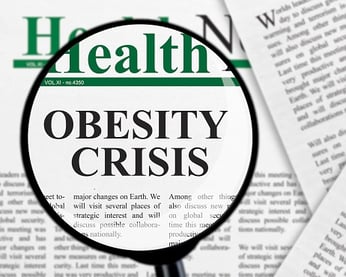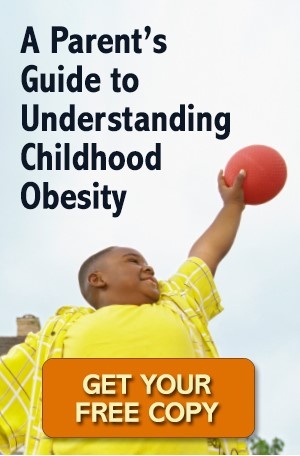 The greatest health crises in Gridley, Biggs, Live Oak and the surrounding towns, are the same as in the entire world: the overweight crisis and the resulting diabetes crisis.
The greatest health crises in Gridley, Biggs, Live Oak and the surrounding towns, are the same as in the entire world: the overweight crisis and the resulting diabetes crisis.
Data has been gathered in the United States since the 1920's on how long people live. Thanks to the advances in medical care, people kept living longer and longer - until recently.
Life expectancy is dropping
For the last two years, life expectancy actually dropped. We docs have had a sneak preview of next year’s numbers, and it appears likely that we'll see the greatest drop in life spans ever. Almost all of this backsliding is due to our overweight crisis and the resulting epidemic of diabetes, as well as deaths from other diseases that are weight related, such as heart attacks.
Just a few years ago, most of us adults, and almost all of our children, were at least pretty close to ideal weight. Now, almost all adults are overweight and even many of our children, along with corresponding high rates of diabetes. There are rarely towns around where parents have such a great love for their children than in Gridley, Biggs, Richvale, and Live Oak. I sense the anguish of parents who bring me their children who are suffering from diabetes.
In my own practice, I see many of our brothers and sisters who come from Mexico, because, like my family practice colleague Brian Pratt, I speak fluent Spanish. Folks from Mexico have a higher risk for diabetes than Anglos. This is because, when the Conquistadores from Spain arrived in Mexico, they intermarried with people from Indian tribes in Mexico who are genetically at high risk for diabetes. I'm fairly certain that more than half of my Mexican-American patients have diabetes.
Diabetes is the Big Kahuna
It's the disease you don't want to run into in a dark alley at night unless you’re carrying guns and knives. It causes heart attacks, strokes, blindness, kidney failure, and sexual dysfunction. (When I'm giving one of my male patients my man-to-man, heart to heart, eyeball-to-eyeball talk on slimming down and avoiding diabetes, I save the sexual dysfunction part for my windup pitch, as it seems to get the attention of us guys a little more than some of those other inconveniences).
The key to avoiding or curing type 2 diabetes (as opposed to the insulin-dependent type 1 diabetes that is rare enough that I've only seen two cases in Gridley) is diet and exercise. Of course, the villains are obvious – the junk food diet that jumps out at us at every turn, and lack of exercise.
Let's start with the kids
It used to be that children got a good diet without much effort. Now, they are bombarded with junk food at every turn. The efforts of our public schools to serve only healthy food are all good, of course, and I would suggest banding together as a community to make junk food less available on the street. While kids used to participate in competitive sports, my own perception is that for overweight kids, competitive sports may have become a non-starter, because it means to them embarrassment and certain failure. Could we concentrate instead on non-competitive sports?
Diet and exercise in adults
 Regarding diet and exercise in adults, most of what I know, or at least believe, I learned from Dr. Dean Ornish.
Regarding diet and exercise in adults, most of what I know, or at least believe, I learned from Dr. Dean Ornish.
He was the physician who demonstrated that heart disease can be reversed with diet and exercise. (Do you-all see a pattern here?) I used to know Dean a little while researching my own book on health. What Dr. Ornish discovered is that simply telling patients that they should diet and exercise didn't accomplish much.
What really got the job done was gathering people together in support groups not only with in-depth presentations by the leaders, but also opportunities to break into small groups and support one another in their diet, exercise and smoking cessation efforts. That got the results and reduced the heart disease, as well as the type 2 diabetes that so many had. All of us are social animals. We all need contact with others to stay positive and to keep our dreams alive.
Imagine what our community could do
Imagine if all of us in Gridley, Biggs, Richvale, and Live Oak could gather together at the Butte County fairgrounds early every morning for calisthenics, yoga and a jog around the track? Imagine if we concluded each exercise session and a few moments of meditation? Would we not then be in a better world? For now, let me conclude that for all of you with diabetes, the staff at Orchard Hospital stand ready to help you.
Almost all folks with type 2 diabetes have an overweight issue, and it can be hard to seek help due to embarrassment. Please be assured that if you seek our help, we will treat you in a respectful and nonjudgmental way, and do our very best to help you to achieve your dreams.
Dr. Dean Ornish has written that he considers the benefits of his group intensives on diet, weight loss, and smoking cessation to be not just from the weight loss and the improved arterial circulation, but also from the social connection with other people.
If you have concerns about your health, talk with your doctor. We have doctors who can help you at Orchard Hospital’s Medical Specialty Center—Your Everyday Health Care Clinic—in Gridley and Orovile, offering walk-in care or appointments.
Our mission at Orchard Hospital is to provide our community with superior healthcare. We strive to ensure that your experience at Orchard Hospital is as pleasant and comfortable as possible. Our priority is to provide you with the care you need when you need it, with skill, compassion, and respect.



